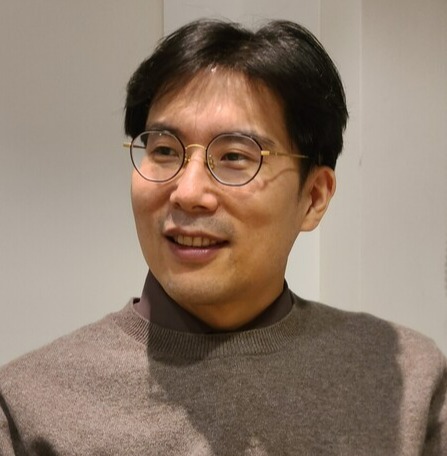A dozen years have passed since platinum-based chemotherapy was used to treat bladder cancer. It means that although various innovative treatments are developed in other cancers, including target therapy and immunotherapy, there have been no therapies better than chemotherapy in n bladder cancer.
However, the role of immunotherapy is increasing even in the treatment of bladder cancer.
It is used as the standard therapy for the secondary treatment of patients with progressive bladder cancer despite platinum-based chemotherapy, as a monotherapy for inoperable patients who cannot use platinum-based chemotherapy, or as maintenance therapy that delays the disease progression as long as possible in patients who showed response to platinum-based chemotherapy.
In Korea, Tecentriq (atezolizumab), an anti-PD-L1 (programmed death-ligand 1) immunotherapy developed by Roche, was the first immunotherapy for bladder cancer.
Based on phase 2 clinical trial results, Tecentriq also received insurance benefits as the secondary treatment of patients with locally progressive or metastatic urothelial cancer who failed in platinum chemotherapy. However, Roche failed to show survival benefits in confirmative clinical trials, voluntarily withdrawing secondary treatment indication in Korea, following in the U.S.
The withdrawal of approval for Tecentriq’s indication was a plus factor for MSD. MSD’s Keytruda (pembrolizumab) is the other anti-PD-L1 immunotherapy with the indication for the secondary treatment of bladder cancer.
Keytruda inherited Tecentriq’s position simultaneously with the withdrawal of insurance benefits for the latter, emerging as the only secondary treatment option for bladder cancer armed with insurance benefits.
Against this backdrop, Merck and Pfizer attempted immunotherapy in the advanced stage. They applied for insurance benefits for Bavencio (avelumab), another anti-PD-L1 immunotherapy approved by the Ministry of Food and Drug Safety for the primary maintenance treatment of unresectable bladder cancer in late 2021.
Bavencio passed the cancer disease review committee in April last year but has since failed to move forward for nine months. The reason for the delayed tabling of Bavencio at the insurance benefits evaluation committee was its drug price, according to experts.
Bavencio, a latecomer compared to other immunotherapies, won the approval for Merkel cell carcinoma, rare cancer, for the first time in Korea. Its pricing process also went ahead without a hitch.
However, suppose the insurance authorities expand their coverage for bladder cancer treatment. In that case, the authorities cannot but evaluate its costs, particularly the costs of other immunotherapies used for the secondary treatment, the experts said.

In a recent discussion, Professor Park In-keun of the Oncology Department at Asan Medical Center in Seoul said there is no doubt about the effectiveness of Bavencio as a maintenance therapy.
“If we implement Bavencio maintenance therapy in patients treated by platinum chemotherapy, the median value of overall survival (mOS) stands at 21.4 months, over seven months longer than the 14.3 months in patients’ who received no treatment other than optimal supportive care,” Park said.
He added that if medical professionals use Bavencio as the primary maintenance therapy, they cannot use Keytruda in the secondary treatment. Park also emphasized that although the target therapy options used in Korea are now limited, the earlier they use immunotherapies, the more advantageous it is for prolonging patients’ survival periods.
However, if the drugmaker sticks to the current Bavencio price, it will face difficulty in price negotiations, noting that the government cannot help but consider Bavencio’s treatment period nearly twice longer than Keytruda’s.
“If we use Bavencio as the primary maintenance treatment, we cannot use Keytruda in the secondary treatment. Bavencio’s treatment period is about four months, but that of Keytruda is half of it,” Park said. “State insurance authorities cannot help but worry about this.”
In the JAVELIN Bladder 100 study, a phase 3 clinical trial that was the basis of approving Bavenio as primary maintenance treatment, the Bavencio group’s median value of progress-free survival was 3.7 months. In comparison, in the KEYNOTE-045 study, a phase 3 clinical trial that provided the basis for Keytruda’s secondary treatment indication, the Keytruda group’s mPFS was 2.1 months.
Therefore, according to the current Bavencio price and dose, using Bavencio for four months as the primary maintenance treatment costs about 30 million won ($2,423) for 60kg. However, if hospitals use Keytruda, the cost is about one-third of Bavencio’s.
“The OS-extending effect of Bavencio (when used as primary maintenance treatment) against the control group is remarkable compared to its PFS-prolonging effect,” Professor Park said. “The result is significant in an area with few treatment options.”

